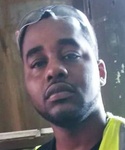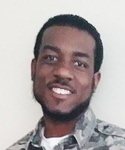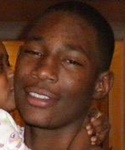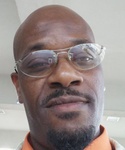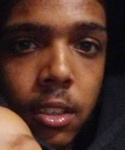
Cortez Bailey was fatally shot near his South Shore home on June 26, 2013, and his mother is still looking for answers. | photo provided
Homicide Watch Chicago
The New Year often brings along a sense of renewal–people begin to plan for their future, begin an exercise regime, quit smoking–but for some, the holiday is only reminder for those they’ve lost.
Cortez Bailey of the 7600 block of South Kingston Avenue was 23 years old when he was shot and killed in broad daylight on the morning of June 26, 2013.
“I got a call from my granddaughter, ‘Papy’s been shot,’ she said. The walls closed in on me at that moment,” Meme Bailey, Cortez Bailey’s mother, said.
He was shot in the chest, police said, though the circumstances surrounding his murder were never solved, according to Chicago Sun-Times reports.
“He liked to be outside,” Bailey recalled. “He was a laid-back guy; he trusted people a lot.”

MeMe Bailey keeps a photo of her son close as she continues to look for answers in his murder, and to try and help other mothers facing the same type of tragedy. | photo provided
Bailey’s son was shot half a mile from his South Shore neighborhood home, leaving relatives to believe his death could have been caused by someone he knew.
“He was not in an unfamiliar place,” Bailey said, “Our family had lived in the South Shore area since 1969. He wouldn’t have just been standing there for no reason.”
Bailey’s son had attended South Shore High School, and had recently obtained his GED.
“He was really good with electronics, he wanted to go to school for auto mechanics,” she said.
Cortez Bailey’s murder brought up a new sore spot for his mother, however.
“A year before my son’s death, a lot of boys were being murdered,” Meme Bailey said. “I was trying to find a good spot to sit and support mothers but I never found any; and I never thought I would be one of them.”
Support groups for grieving parents are most common in hospitals that refer parents to psychologists after losing an infant, but local chapters of groups set up specifically to help murdered children are less common.
Popular nationwide groups like Mothers Against Murder and the National Organization of Parents of Murdered Children are tens of thousands strong across the U.S., but honing in on a Chicago chapter can be difficult.
“I was alone with no support from leaders in the area when I lost my son,” Meme Bailey said. “There weren’t any support groups for me to go to. When you’re in this position it’s nice to be with mothers that it has also happened to.”
On top of the lack of support, counseling can quickly become expensive. For most parents left with grieving hearts, the struggle to return to normal life can seem daunting.
“People that haven’t experienced the death of their child have a knack of saying the wrong things,” Bailey said. “Everyone has a place in the world, and we have to do better. We have to support each other.”
